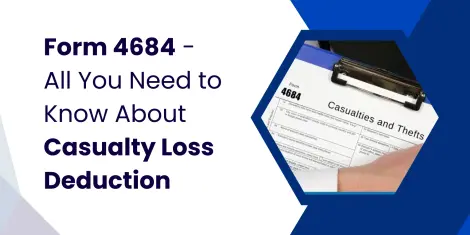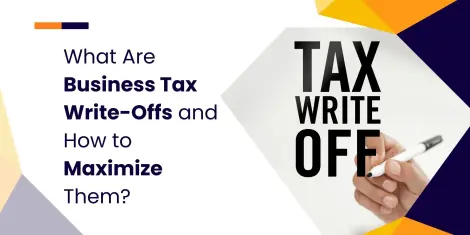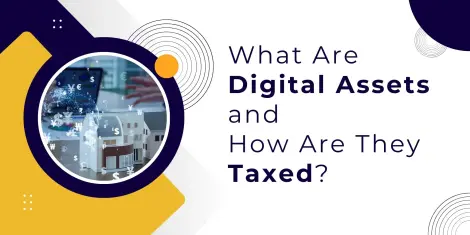Table of Contents
Several bills have been passed by the United States Government and the IRS to ensure public security and help people affected by the wealth disparity in society. One of the most significant steps comes in the form of Earned Income Tax Credit. The earned income tax credit, also referred to as EITC, aims towards helping low to moderate earning. It is a refundable tax credit, ranging between $560 and $6,935. Whether a person is eligible for EITC is based on several factors, including the filing status of the taxpayer and the number of children that depend upon them. However, one must also remember that they are eligible for the tax credit even if they do not have children. As stated earlier, this is a refundable tax credit, and it can provide taxpayers with refunds in addition to lowering their tax bills in a few cases. Let us discuss the Earned Income Tax Credit for low to moderate-income people.
Who is qualified for the Earned Income Tax Credit?
To be eligible to receive the EITC, the taxpayer must adhere to several mandatory rules, which are stated below.
- Maximum income: The taxpayer must have worked in the tax year, and their earned income must be below $59,187
- Upper investment income cap: Taxpayers that have received more than $10,300 in 2022 as income from their investments are not eligible for the EITC, as mandated by the government. Investment income includes interests received (both taxable and tax-exempt) and capital gain distributions.
- Valid Social Security Number: The taxpayer must have a valid SSN to receive the EITC for that year issued before the due date of the 2022 As.
- Citizenship of the US: The taxpayer must be a US citizen or a year-round resident alien to be able to receive the EITC for 2022.
- No foreign income: The taxpayer must have yet to file Form 2555 for Foreign Earned Income exclusion.
EITC range for taxpayers:
Several factors decide the EITC
How to claim the EITC:
Documents required to file for EITC:
To receive the EITC, the taxpayer must have filed and claimed a Federal tax return. For a taxpayer to claim the EITC, they must have several documents and details. These documents and details include the Social Security cards for everybody that is listed on the tax return, their birth dates, and copies of the federal and state tax returns that you received last year. If the kid does not have an SSN, a Taxpayer Identification Number must be provided by the taxpayer for the kid. However, if the taxpayer has had a child born in 2022 and died within the same year, the taxpayer can write “DIED” in column 2 of the “Dependant” section of Form 1040. The taxpayer must also have arranged all the income and expense records, as their documentation will be needed to determine the amount of EITC they are entitled to. Bank account details are also required for the IRS to provide a tax refund, and bank account details are also required if a taxpayer is entitled to one.
Things you need to do to avail of the EITC you are entitled to:
For a taxpayer to claim the Earned Income Tax Credit, they must have filed a tax return. The tax return is mandatory, irrespective of whether the taxpayer owes any tax money to the government. Upon successfully calculating a taxpayer’s EITC, they must provide information regarding their qualified children through Schedule EIC(Form 1040 / Form 1040-SR). This is mandatory for taxpayers with children. Taxpayers can follow this process by logging into the official IRS website, or by sourcing help from a tax service provider, who can help you save taxes to a great extent.
Other considerations to be made while claiming the EITC:
If a taxpayer has raised a claim for EITC, their tax refunds might get delayed, as the IRS is not allowed to issue EITC to taxpayers before mid-February. Most taxpayers receive their tax refunds, including the EITC they are entitled to, by the 1st of March, if they have opted to receive their refunds through direct deposits. Taxpayers that are eligible for the EITC must be aware of the fact that they can claim EITC for prior years as well. However, they must file and claim the EITC within three years from the due date of their tax return. One can refer to the following table for a clearer perspective of the window within which a taxpayer can claim the EITC for prior years. This table provides information regarding the deadlines for claiming EITC for prior years:
.png)
Tax strategization is a crucial part of the tax filing process, as without a proper strategy, a taxpayer might end up losing money on high tax bills. If a taxpayer is not aware of all the deductions they are eligible for, they might end up leaving money on the table as well. To avoid these issues, businesses and individuals source help from Tax Service providers that keep an eye on the transactions made by the taxpayer. Monitoring the transactions made by a taxpayer allows these service providers to list several deductions and credits that the individual would have missed out on, had they done it all by themselves. NSKT Global is a leading provider of tax and accounting services and is known for the skillful, and dedicated team of professionals that work for the company. Head over to the official NSKT Global website, and find out how you can leverage the services offered by the company, to lower your tax bills, and avoid losses!
Frequently asked questions
- Can taxpayers avail of EITC even if they are separated from their spouse?
Yes! Separated taxpayers can also avail of the EITC. However, one can avail of the maximum EITC if they are married and file taxes jointly.
- Can taxpayers that do not have qualifying children avail of the EITC?
Taxpayers without qualifying children are eligible for the EITC. However, to avail of the EITC without having children that qualify for the EITC, the taxpayer must be older than 25 years of age but lower than 65. It is also essential for the taxpayer to be a resident of the United States.
- What are the qualifying terms for children to be considered while filing for the EITC?
The child mentioned while filing for the EITC must be the taxpayer’s son/daughter, adopted child, grandchild, or stepchild. It is also mandatory for the kid to be less than 19 years old or 24 if they study full-time.



.png)




